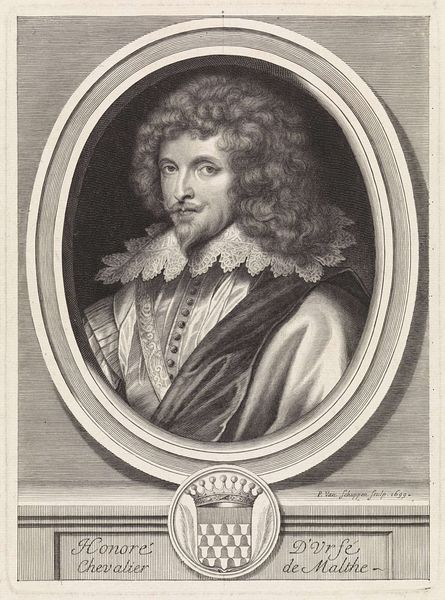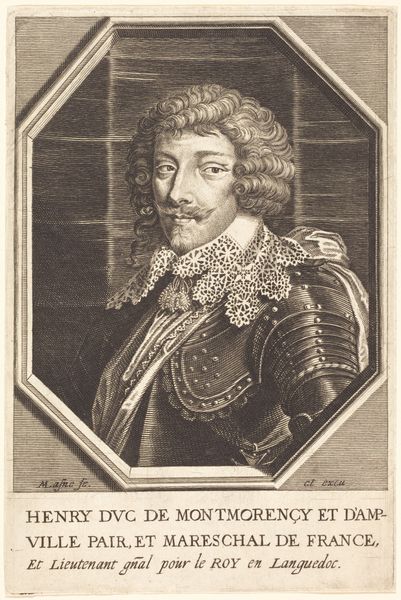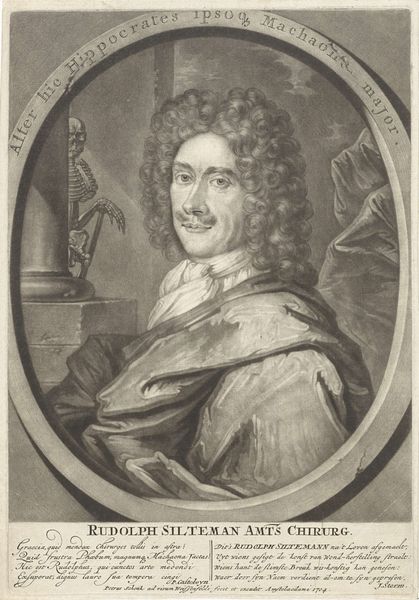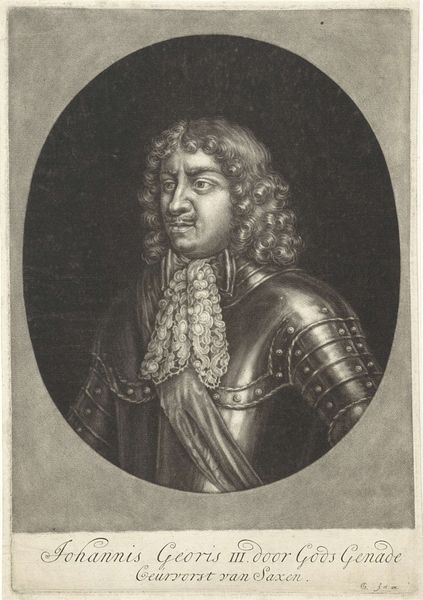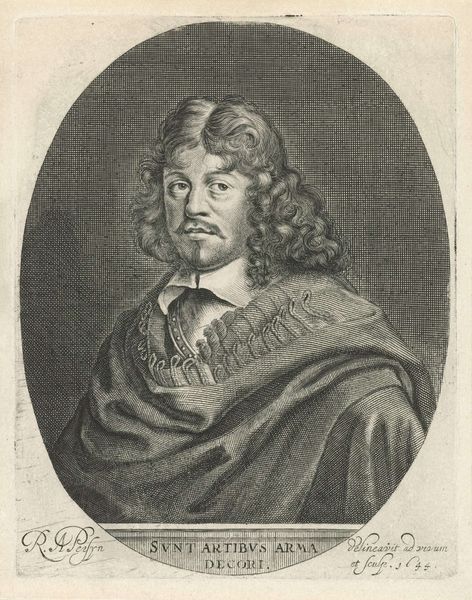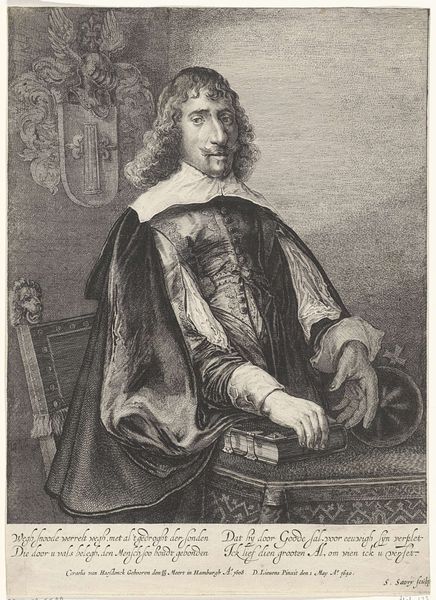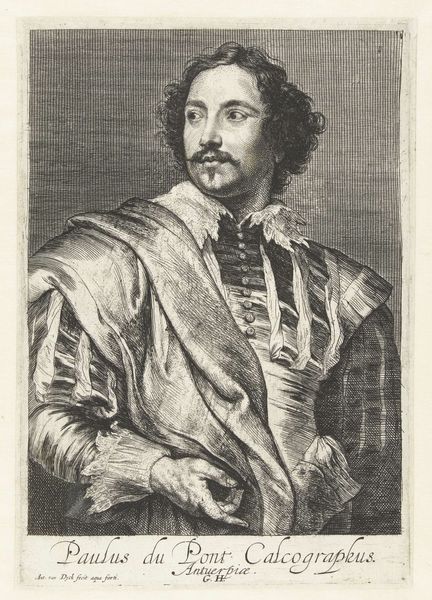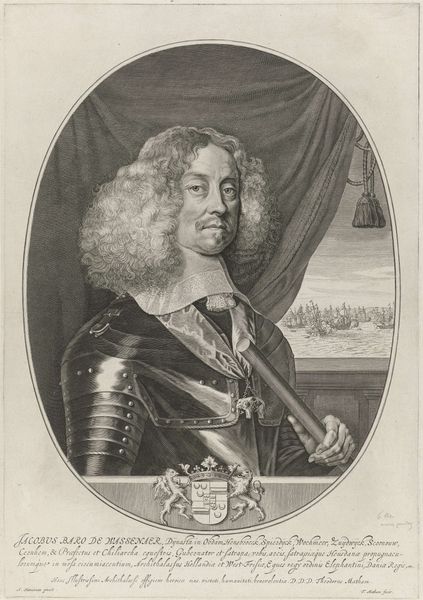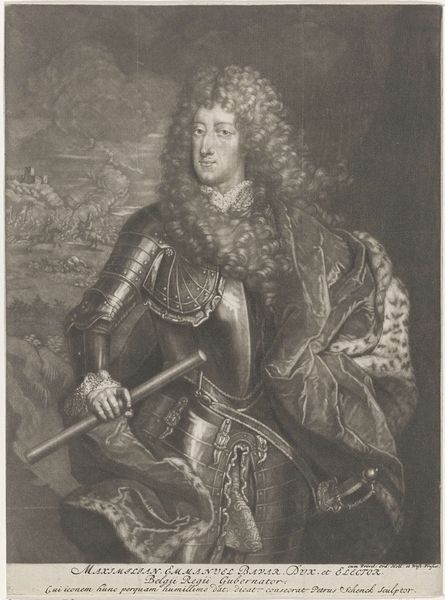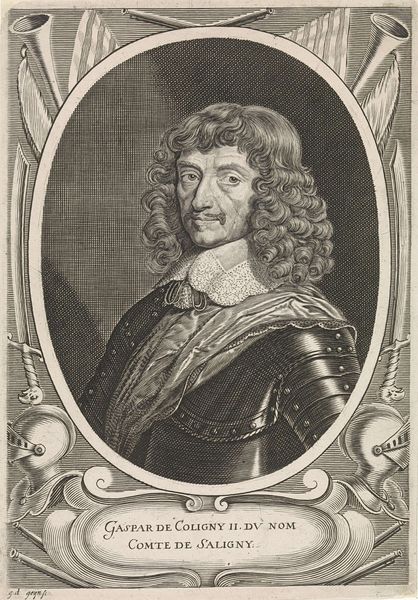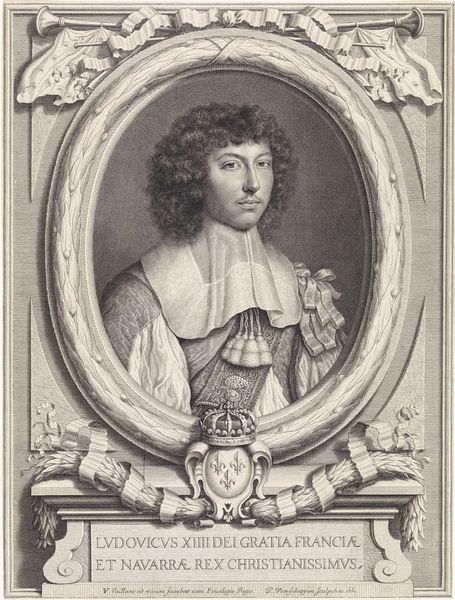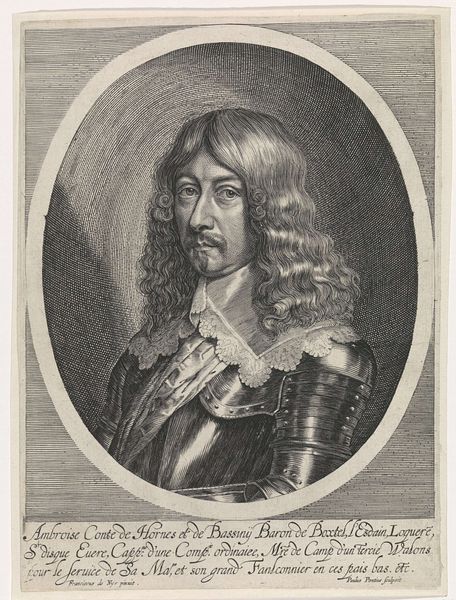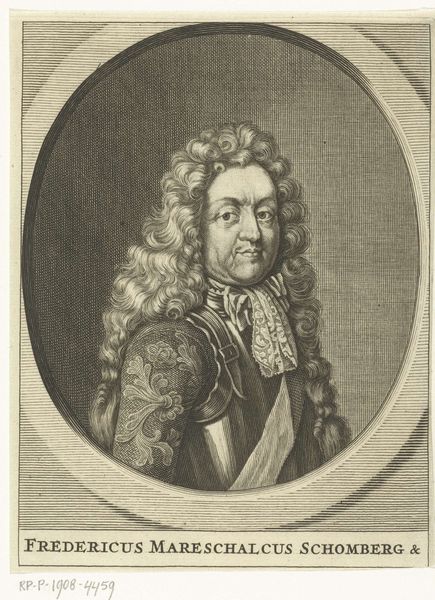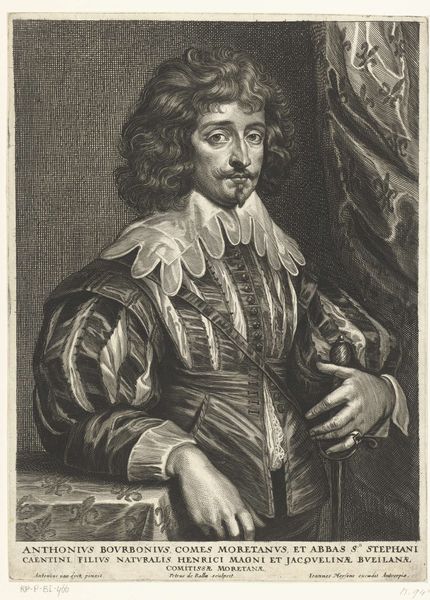
print, engraving
#
portrait
#
baroque
# print
#
history-painting
#
engraving
Dimensions: height 250 mm, width 191 mm
Copyright: Rijks Museum: Open Domain
This engraving by Pieter de Bailliu portrays the writer Honoré d'Urfé, his gaze exuding the self-assuredness of a nobleman. Note the lace collar, a symbol of wealth and status. The lace, ubiquitous in portraits of this era, echoes in countless depictions of the elite, from royal families to merchant princes across Europe. The collar has origins that can be traced back to ruffs, which started as small pleats on shirts and gradually evolved into separate, starched, and elaborate neckwear. The movement of the lace is reminiscent of the wings of Mercury. Mercury, known as Hermes in Greek mythology, is often shown with winged sandals. The wing motif has evolved through different cultures and times, reappearing on helmets, hats, and shields. It symbolizes speed, agility, and the ability to travel between worlds. The collar is a motif that continues to evolve even today, reminding us how symbols can be repeated across different contexts.
Comments
No comments
Be the first to comment and join the conversation on the ultimate creative platform.
